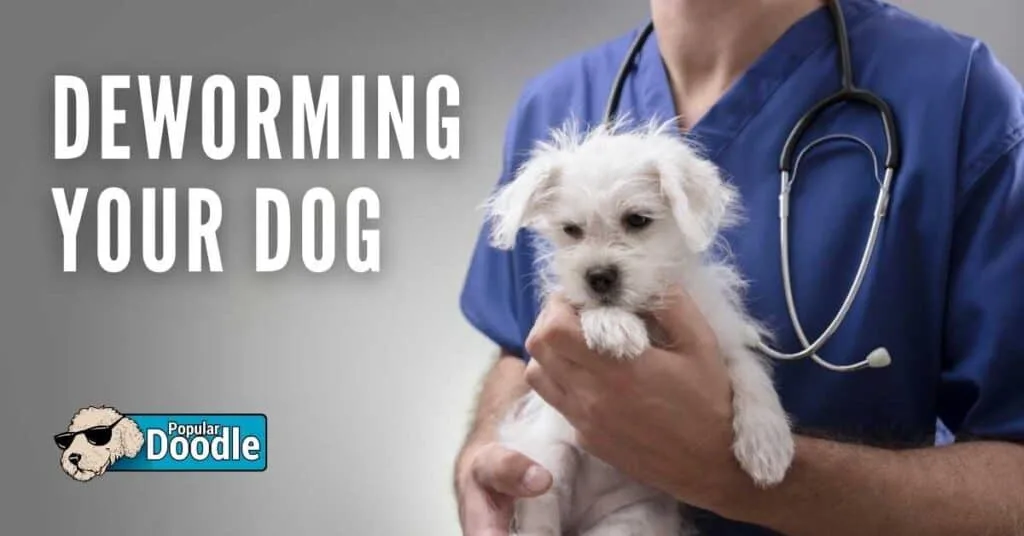By Dr. Merliza Cabriles, D.V.M.

Intestinal parasites are very common health issues in dogs. The best way to get rid of them is to have a deworming program that involves giving safe and effective worming medications recommended by your veterinarian.
Dewormers can be given by mouth or as an injection. Many of these products are formulated to be “broad spectrum,” which means they can treat a wide range of parasites.
While worms rarely cause serious health issues, a heavy parasite load can eventually have an impact on the health and well-being of pets. Worms in the intestine compete with your dog’s nutrition by feeding on nutrients in their digestive tract. Some types of worms, like hookworms, feed on the blood of their hosts.
In puppies, heavy worm infestations can increase their risks of developing severe anemia and malnutrition. The worms could also cause an obstruction along the intestinal passage.
In severe cases, puppies can die when there is heavy worm burden.
Certain types of worms, like Toxocara, Giardia, hookworms, and some species of tapeworms, can be passed on to humans. This can cause serious problems especially in children. The larvae of Toxocara (a type of roundworm) can migrate through the body and end up in the child’s brain or eye where it can cause seizures and blindness.
A simple stool exam can help determine the type of worms that are present. This is an important step in the diagnosis so the right worming medication can be given. The most common intestinal worms that affect dogs include roundworms, hookworms, tapeworms, and flatworms.
Quick Tip: Take time now to invest in pet insurance as early in your dog’s life as possible. Consider getting quotes from top-rated companies like Healthy Paws or Embrace who will cover up to 90% of your dog’s medical bills for accidents and illnesses.
How Long Does it Take for Worms to Leave a Dog?
Your dog is likely to start passing worms or parts of the worms after 2-6 hours from the time the dewormer was given. You may continue to see dead or dying worms or their components for about a week after administration. In serious infestations, dead worms may still be present in your pet’s feces for up to two weeks.
How Long Does It Take for a Dewormer to Start Working?
Most dewormers or worming medications start acting on intestinal worms from 2-6 hours after administration. However, there are dewormers that can take about 10-12 hours after being given to start working.
What If I Still See Worms in My Dog’s Poop After Deworming?
After your pet has been given deworming medication, there may be dead worms in their feces. This is nothing to be worried about. Sometimes, the worms may still be moving a little bit but they will eventually die.
Should Dog Worms be Dead or Alive After Treatment?
After treatment, you may or may not see dead worms in your pet’s poop. Some deworming medications act by paralyzing the worms and eventually killing them. In this case, dead and almost dead worms may be present in your dog’s poop.
Other worming medications kill and sometimes break down the worms so you may not spot any worms in your pet’s poop.
Signs That Worms Are Leaving the Dog After Deworming
There are different types of dewormers and their active ingredients will determine their mode of action against intestinal worms.
Some dewormers may kill the worms while still inside the intestines. Thus, you may not see whole worms coming out because they have already disintegrated and are eliminated with the feces.
However, there are worming medications that paralyze and kill the worms. In this case, you may see worms in your pet’s poop. Some may already be dead and some may show slight movements but will eventually die.
Some dogs even vomit up the worms when they have a heavy parasite infestation.
Potential Side Effects of Dewormers
Some common side effects of dewormers in dogs include the following:
- Minor digestive upsets such as diarrhea that usually resolves on their own within 1-2 days.
- Some dogs and puppies may appear off for a few days while their body is eliminating the worms. There’s no reason to worry as long as your pet returns to normal within 3 days or so.
Serious dewormer side effects are quite rare. These include…
- Blood in your dog’s poop.
- Diarrhea that lasts longer than 3 days.
- Vomiting more than once.
- Loss of appetite for more than a day or two.
If your pet is showing any of these symptoms, contact your veterinarian.
Take your pet to the nearest veterinary clinic immediately if they are showing serious side effects of deworming such as breathing difficulties, trembling, incoordination, extreme lethargy, and other alarming signs.
Potential side effects of dewormers are not particularly significant if you have given an appropriate dewormer at the right dosage and administered based on the product’s instructions.
However, it is highly recommended to always consult your veterinarian to ensure you’re using a deworming product that is safe and effective for your pet.
How Long Will My Puppy Have Diarrhea After Deworming?
If some diarrhea occurs after giving deworming treatment, it should only last for 24-48 hours. If it continues longer than that, you should take your pet to your veterinarian for a checkup.
How Often Do You Worm a Dog?
Veterinarians generally recommend that dogs be dewormed at least every three months. However, there are instances when monthly deworming is recommended, such as when your dog participates in hunting activities, has a habit of scavenging through garbage piles, or you have children in your home.
For puppies, deworming is routinely done every 2-3 weeks until they are 6 months old.
When Should I Seek Further Veterinary Help?
In non-emergencies, you can live chat with a veterinarian online by clicking here!
Contact your veterinarian if your dog exhibits the following signs:
- There’s blood in your dog’s poop
- Diarrhea that’s been going on for more than three days
- Vomiting more than once
- Loss of appetite for more than a day
Take your pet to your veterinarian immediately if the following signs are manifested:
- Difficulty breathing
- Trembling
- Extreme lethargy
- Incoordination
Sometimes, it is necessary to deworm your dog several times before the problem is completely fixed. Reinfection, however, is always a possibility.
Have More Questions?
No two dogs are the same, so it can help to get personalized answers to questions about your pet’s health. In non-emergencies, you can live chat with a veterinarian online by clicking here!

Dr. Merliza Cabriles, D.V.M.
Contributing Professional
Dr. Merliza Cabriles is a licensed veterinarian and university professor with many years of experience in food animal and pet companion medicine. Her passion for writing as well as pet parent education and support is echoed in the articles and ebooks she has written.









